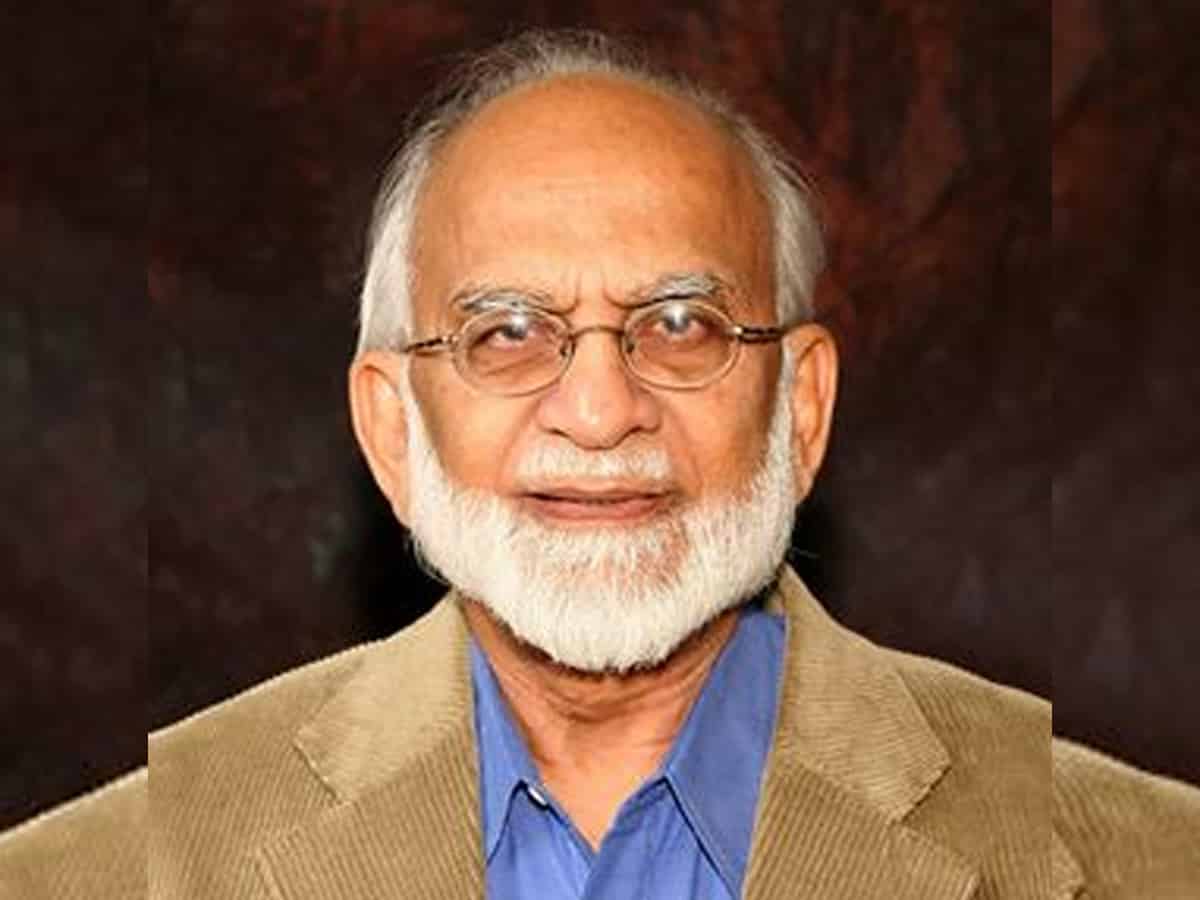
New Delhi: King Faisal Award-winning Indian Islamic economist Mohammad Nejatullah Siddiqui passed away in the U.S. on Saturday.
According to information received from various sources he was unwell for a long time living with his family in the U.S.
The 91-year-old economist, one of the senior most member of the Jamaat-e-Islami Hind, was unique in many ways. He first went the regular modern education, entered into a madrassa system to study Islamic studies and returned to modern education to complete his Ph. D.
He once told this writer during a meeting in Jeddah, Saudi Arabia that it was at the instance of Maulana Abul A’la Maududi that a group of graduates returned to the madrassa system of education to get a grip over the basics of Islam and then continue with the modern education. He was one of those who followed Maulana Maududi’s advice and went to madrassas in Rampur and Azamgarh in Uttar Pradesh.
He later joined Aligarh Muslim University and taught Islamic Studies and Economics there for a few years. Later, in the 1970s he moved over to the Kingdom of Saudi Arabia where he joined King Abdul Aziz University as a Professor of Economics. It was the time when the Kingdom had established a Research Centre related to Islamic Economics.
It was an emerging subject that attracted many intellectuals to Economics from the viewpoint of Islam as several of the Muslim-Arab nations had begun to feel the impact of the world economy on their States.
Prof. Siddiqui later became a Fellow at the Center for Near Eastern Studies at the University of California and still later a visiting scholar at the Islamic Research and Training Institute with the Islamic Development Bank in Jeddah.
Meanwhile, the President of Jamaat-e-Islami Hind (JIH), Syed Sadatullah Husaini has mourned the passing away of Prof. Nejatullah Siddiqui.
Husaini said: “We are extremely sad on hearing the news of the demise of Dr. Nejatullah Siddiqui. His contribution to the field of Islamic economics was unparalleled. He pioneered the concept of Islamic banking and laid the foundations of what is now a thriving multi-billion-dollar industry.
Some of Prof Siddiqui’s notable books are Recent Theories of Profit: A Critical Examination; Economic Enterprise in Islam and Muslim Economic Thinking; Banking Without Interest; Partnership and Profit-sharing in Islamic law; Insurance in an Islamic Economy; Teaching Economics from in Islamic Perspective; Role of the State in Islamic Economy; Dialogue in Islamic Economics, and Islam’s View on Property.
